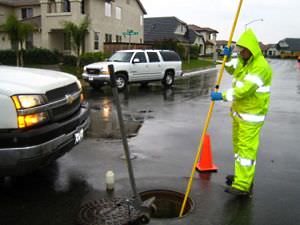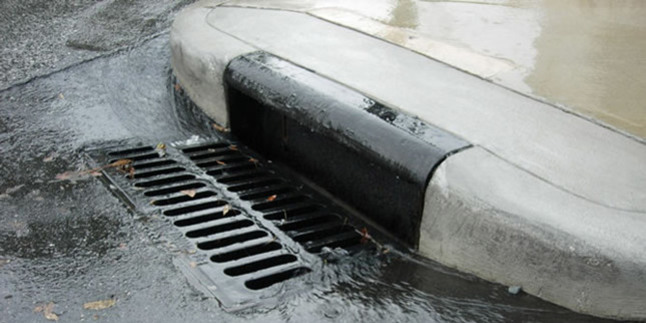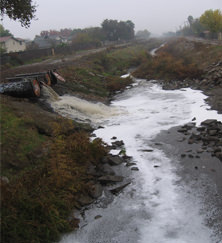Condor offers a complete range of storm water regulatory compliance support including report preparation, training, storm water sample collection, testing, analysis, and Stormwater Multiple Application and Report Tracking System (SMARTS) data entry as well as a staff of highly trained storm water practitioners to conduct visual observations and sample collection. We also train site personnel to collect and analyze samples in compliance with the facility’s Monitoring Implementation Plan (MIP). Condor can provide assistance throughout program development, implementation, and reporting including acting as a liaison with state-certified laboratories. Condor has successfully developed Storm Water Pollution Prevention Plans (SWPPP) and MIPs for many large industrial facilities in California. Condor’s experienced staff includes Qualified Industrial Storm Water Practitioners (QISPs), Qualified SWPPP Developers/Practitioners (QSDs/QSPs) as well as civil and environmental engineers, certified geologists, and hydrogeologists.
Other services that Condor can assist with include:
Construction General Storm Water Permit Compliance
Industrial General Storm Water Permit Compliance
Municipal Storm Water Services



The National Pollutant Discharge Elimination System (NPDES) General Permit for Storm Water Discharges Associated with Construction and Land Disturbance Activities (Order No. 2022-0057-DWQ effective 09/01/2023) requires that a SWPPP be prepared for any construction or demolition activity that results in a land disturbance of equal to or greater than one (1) acre. To obtain coverage under the Construction General Permit, Permit Registration Documents (PRDs), which include a Notice of Intent (NOI), SWPPP, and other documents, must be submitted to the State Water Resources Control Board.
Condor’s qualified QSDs are available to assist with any construction project in the preparation and submittal of the PRDs and in the development of project-specific, cost-effective Best Management Practices (BMPs). Condor has provided construction SWPPP services since 1999 for major agricultural and grading projects throughout California. Condor’s Construction Storm Water Compliance Services include:
The NPDES General Permit for Storm Water Discharges Associated with Industrial Activities (Order No. 2014-0057-DWQ as amended in 2015 and 2018) regulates storm water discharges and authorized non-storm water discharges (NSWDs) from regulated industrial facilities. To obtain coverage under the Industrial General Permit, PRDs, which includes appropriate coverages application, SWPPP, and site specific maps, must be submitted to the State Water Resources Control Board. In addition, in 2019, Senate Bill 205 requires a person applying to a city or county for a new or renewed business license to demonstrate enrollment in a NPDES storm water permit, if such a permit is required.
Condor’s extensive experience providing industrial storm water support services allows us to effectively develop site-specific SWPPPs and BMPs, thereby enabling our clients to maintain compliance with increasingly complex storm water regulations. Proactive support for our clients and cost-effective storm water management alternatives are the hallmarks of Condor’s Industrial Storm Water Services.
Condor’s QISPs are available to assist with any industrial facility with storm water site evaluations and pollutant source assessments including determination of appropriate coverage, preparation and submittal of the PRDs, and development of pollutant source specific BMPs. Condor has provided industrial SWPPP services since 1999 for Wineries, Food and Beverage Processors, Manufacturing Facilities, and Mining Facilities throughout California including Washington, Alabama, Arkansas, and Colorado. Condor’s Industrial Storm Water Compliance Services include:
Since 2003, Condor has provided storm water permit support, including Water Code Section 13267 compliance actions, for Phase 1 and Phase II municipal entities within the Central Valley. Condor’s team of QISPs, QSDs/QSPs, certified hydrogeologists, geologists, and engineers are available to support all aspects of municipal storm water programs. Services include conducting water quality monitoring, on-land visual trash assessments (OVTAs) and municipal construction, industrial, and commercial storm water site inspections.
Condor’s Municipal Storm Water services include: